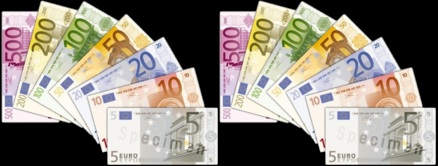Has the Eurozone saved its currency?

Will the words translate into action?
Margaret Thatcher famously once said that there is no way in which one can buck the markets, a fact of life that the Eurozone has finally woken up to and sought to address with a stringent set of rules for countries operating in the Eurozone, including constitutional commitments to keep structural deficits below 0.5% of GDP, submitting national budgets to Brussels for approval and sanctions for those who fail to meet their targets.
This represents a huge transfer of power from national governments to the EU, providing it really means something. We have been here before. The Maastricht Treaty detailed strict rules as to who was allowed to be permitted to join the Euro and who wasn’t – they were effectively ignored for political reasons, not least because Germany itself was one of the first to break them. Perhaps the consequences of those decisions – especially the fateful one to let Greece in – may now have sunk in.
An enormous amount turns on the as yet undefined sanctions and the means to enforce them. The text from the communiqué reads
As soon as a Member State is recognised to be in breach of the 3% ceiling by the Commission, there will be automatic consequences unless a qualified majority of euro area Member States is opposed. Steps and sanctions proposed or recommended by the Commission will be adopted unless a qualified majority of euro area Member States is opposed.
A state that is in breach for having an excessive deficit can hardly be fined so the sanctions would have to be political rather than economic, but what? Send a delegation to ‘advise’ (which could be ignored)? Refuse to use the EFSF (which in practice would exacerbate the crisis)? There are only so many things the EU has the power to do.
To take a practical, local, example – the UK was probably running a structural deficit of around 3-4% of GDP just before the Credit Crunch: £40bn or so at a time of near-full employment after years of growth and during a property boom. Suppose Brussels had turned up to Gordon Brown and said ‘you have to cut £50bn from your budget or else’. How would he, Labour, the Tories, the public and the media reacted?
It is all very well nations accepting austerity after the crunch but the purpose of the rules is to avoid a crunch in the first place, or at least to be well placed to weather one, and such instruction will be less well received when the coffers appear to be full. (Obviously, the example of the UK doesn’t apply given Cameron’s veto but the point is in using familiar figures – and besides, Brown, or more likely Blair, could have signed up to such a deal in their first term).
Before all that, there are two major obstacles for the Eurozone to overcome. Its members have to ratify that agreement – no small task if it involves constitutional changes – and it has to survive the crisis in market confidence in some of its members before then. There is no point having rules if there is no currency.
To return to the original point Thatcher made, markets price things like debt based on confidence and expectations. Governments can affect the markets if they change expectations. Will they change? Put another way, should expectations change? That all comes back to whether they think the deal can be ratified and implemented, and history suggests they should be sceptical on both counts. I would anticipate another ‘crisis summit’ by the end of February.